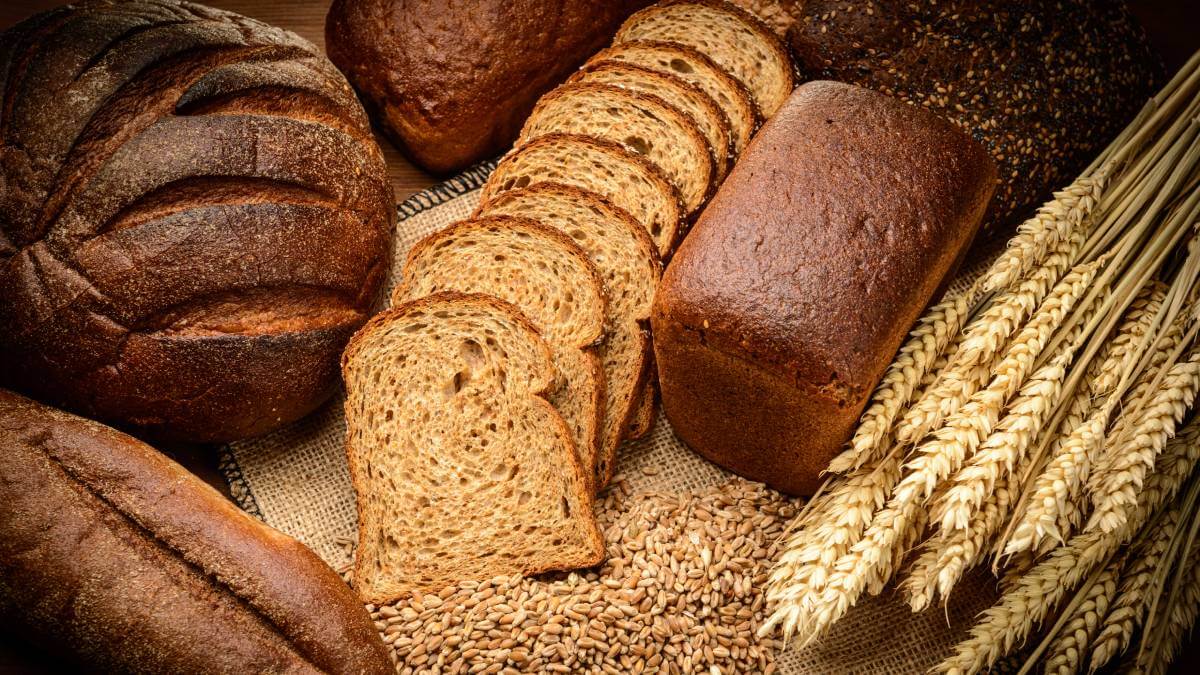Trying to make the healthy choice in the supermarket isn’t as easy as we’d like it to be, especially when it comes to breads and grains. There are so many different types of bread and pasta it can be difficult to tell which are actually good for you, and which are just trying to sound healthy. Grains make up a significant portion of many people’s diets, so understanding them is essential to healthy eating.
Many breads, pastas and crackers are labelled ‘whole grain’ or ‘whole wheat’, but what does this actually mean?
“Whole wheat is always whole grain, but whole grain doesn’t always mean whole wheat,” registered dietitian Maggie Moon told Mind Body Green (MBG). While whole wheat must be wheat, whole grains include a range of different grains such as whole barley, brown rice, buckwheat, oats and sorghum.
Whole grains are grains that are unprocessed or have been minimally processed. They are made up of three main parts, the bran (the outer layer), the germ (the seed’s nutrient embryo) and the endosperm (the germ’s starchy food supply). Whole-grain products still contain these three components intact.
Whole grains
“These healthy components of whole grains make all the difference, and they’re what’s missing in white bread and pasta,” Ms Moon told MBG.
The bran and the germ are high in vitamins, minerals, phytochemicals and fibre, and whole grains are generally rich in magnesium, iron, manganese, phosphorus, selenium and B vitamins. “Whole grains, including whole wheat, are a fundamental part of a brain-boosting eating pattern, due to their antioxidants, essential minerals, and dietary fibre.”
Whole grains are packed with fibre, meaning that energy from your food is more slowly and steadily absorbed by your body. They are an important element of metabolism and heart-healthy diets as they help to lower the post-meal spike of insulin. Studies have found a link between choosing whole grains over refined grains and reduced risk of heart disease, cancer and type 2 diabetes.
So, which is better for you? Well, the answer is not as simple as one being healthier than the other. Both whole grain and whole wheat contain important dietary factors such as minerals, fibre, vitamins and phytochemicals.
People who have gluten intolerance, sensitivity or coeliac disease, will avoid eating whole wheat as it contains gluten. However, there are a range of other gluten-free whole-grain options available. For those who are able to eat gluten, eating a balanced diet containing a variety of whole grains including whole wheat is recommended.
Some healthy whole-grain options include:
Oats
Not only are they gluten-free, but oats are packed with vitamins, minerals, fibre and antioxidants. Avenanthramide, a primary antioxidant found in oats, has been linked to lowered blood pressure and reduced risk of colon cancer. However, some oats such as microwavable porridge has been processed, so be sure to look for steel-cut oats, oat groats or rolled oats.
Whole-grain rye
While it is a member of the wheat family, rye contains fewer carbs and more nutrients than wheat. Just 100g of rye flour contains 22.6g of fibre, 90 per cent of an adult’s daily fibre requirement. Be mindful that rye contains gluten.
Whole Barley
Hulled barley contains high amounts of minerals such as manganese, magnesium, zinc, copper, potassium, phosphorus, iron, fibre and vitamin B. Just one cup of whole barley flour contains nearly 15g of fibre. That’s 60 per cent of an adult’s healthy daily intake. Be mindful that barley contains gluten.
To check what your bread or pasta really contains, look at the ingredients list to check if the first ingredient is the whole grain you’re looking for. Some products advertised as multigrain, stone ground or wheat may contain other ingredients alongside an amount of whole grain.
Do you prefer whole or refined grains? Would you consider switching to whole grains and whole wheat for the health benefits? Why not share your thoughts in the comments section below?
Also read: Does toasting your bread make it healthier?
Disclaimer: This article contains general information about health issues and is not advice. For health advice, consult your medical practitioner.

